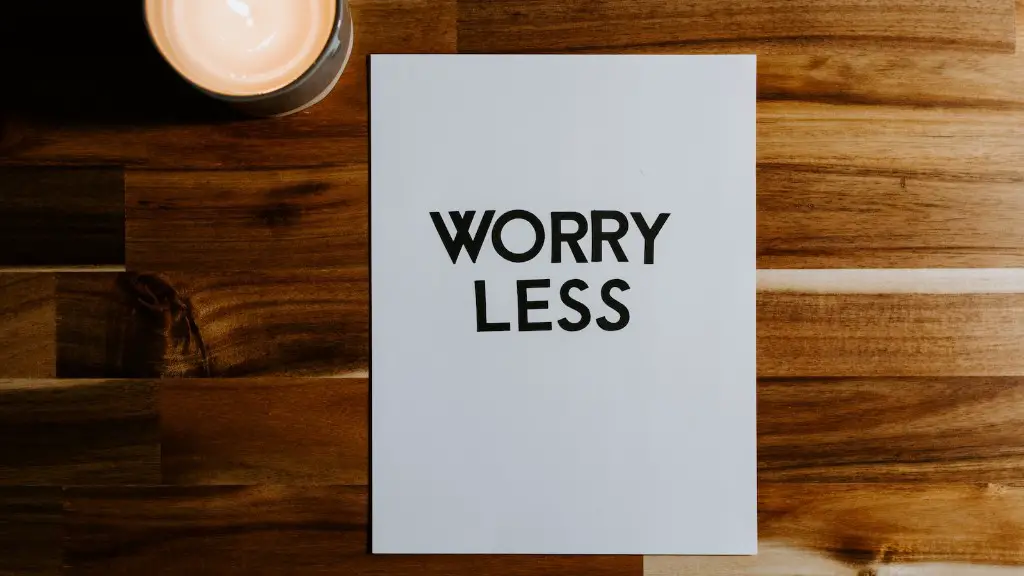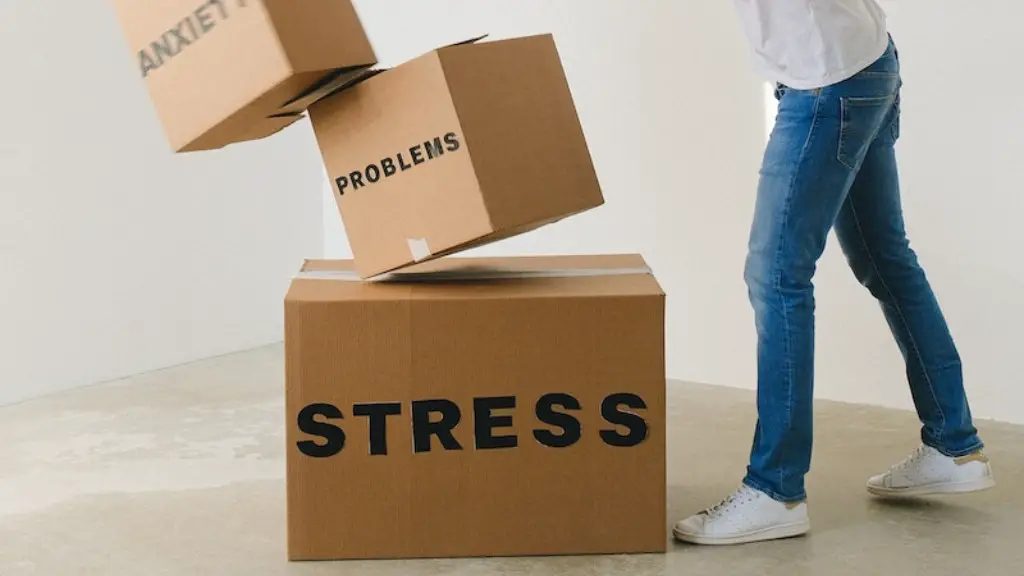Yes, stress and anxiety can cause shoulder pain. There are a few different ways that this can happen. First, when we are stressed, our muscles tense up. This can lead to pain in the shoulders and neck. Second, stress can cause inflammation in the body. This can also lead to pain in the shoulders. Finally, anxiety can cause us to breathe more shallowly. This can make the pain in the shoulders worse.
There is no single answer to this question as everyone experiences stress and anxiety differently. However, some research suggests that shoulder pain may be a possible symptom of stress and anxiety. In particular, one study found that people who self-reported higher levels of stress and anxiety were more likely to also report shoulder pain. Therefore, if you are experiencing shoulder pain and stress or anxiety, it is worth discussing this with your doctor to see if there is a possible link.
What does shoulder pain from anxiety feel like?
neck, back, and shoulder tension, stiffness, and pain are all common anxiety symptoms. The neck, back, shoulders, or back or top of the head may feel tense, tight, stiff, or sore. It might also feel as though you have a tight band around your head. These symptoms can be caused by stress and anxiety.
If you’re experiencing neck and shoulder pain that may be related to stress or anxiety, know that there are things you can do to help relieve the pain. Stretching and yoga can be helpful, as well as relaxation and other stress management techniques. Don’t suffer needlessly – give these a try and see what works for you.
How do you relieve shoulder tension from anxiety
This is a great way to relieve tension in your shoulders!
When you feel that you are becoming tight/tense and lifting your shoulders up, try 30 seconds to one minute of deep breathing (breath in through your nose and out through your mouth) while trying to drop and relax your shoulders. This type of breathing can help reset the body and decrease stress.
What are red flags for shoulder pain?
If you notice any of the following red flags, it may indicate the need for urgent investigations and/or referral to secondary care:
-Acute presentation with a history of trauma (especially if pain restricts all passive and active movements)
-Systemic symptoms such as fever, night sweats, weight loss, or new respiratory symptoms
If you are experiencing sharp pain, a dull ache, or a feeling of pressure around your head and eyes, it is important to consult with a medical professional to rule out any potential underlying health issues. However, these symptoms are also commonly associated with anxiety. Anxiety can upset the balance of hormones in the body, which may trigger an increase in migraines for some women. If you are struggling with anxiety, there are many treatment options available that can help lessen your symptoms.
How do I know if my pain is from stress?
Stress can cause your muscles to tense up, which can lead to pain and soreness in virtually any part of the body. The most common stress-related aches and pains are in the neck, back, and shoulders. To relieve stress-related muscle pain, try massage, yoga, or relaxation techniques.
Shoulder pain is a very common issue, and the most common cause is when the rotator cuff tendons become trapped under the bony area in the shoulder. The tendons can become inflamed or damaged, and this condition is called rotator cuff tendinitis or bursitis.
How long can anxiety muscle tension last
Anxiety muscle tension symptoms can be very brief or last for a long time. They can also be set off by trying to relax or sleep.
If you find yourself experiencing shoulder or neck pain, it is important to take a step back and examine your lifestyle. Generally speaking, anger and pride can create tension that results in shoulder neck pain. Additionally, an increased mental workload can cause extra shoulder tension. You may literally feel like you are carrying the weight of the world on your shoulders. It’s a saying for a reason! Try to take some time for yourself to relax and de-stress. Shoulder and neck pain can be a sign that you need to take a break.
What physical symptoms can anxiety cause?
Anxiety can have a number of effects on your body. You may feel a churning feeling in your stomach, light-headedness or dizziness, pins and needles, or restlessness. You may also experience headaches, backaches, or other aches and pains. Your breathing may become faster, your heart may beat faster or irregularly, and you may sweat or experience hot flushes.
The emotions that are often stored in our shoulders are those of burdens and responsibilities. This is due to the fact that our shoulders are constantly carrying the weight of the world on them. Other emotions that can be stored in our shoulders are fear and repressed self-expression. This is because we often tense up our shoulders when we are feeling these emotions. Lastly, lower back tension can be a sign of guilt, shame, and unworthiness. This is because we often hold ourselves back and tighten up our lower back muscles when we feel guilty or ashamed.
How do you release stress from neck and shoulders
1. Yoga: Yoga is a physical activity that incorporates stretches, poses, focus, and meditative breathing.
2. Neck stretches: Stretch your neck muscles by moving your head slowly from side to side, up and down, and in circles.
3. Shoulder rolls: Roll your shoulders forward and back to release tension.
4. Apply a warm compress: Apply heat to your neck and shoulders to relax the muscles.
5. Take a warm shower: The warm water will help to relax your muscles.
6. Neck and shoulder massage: Massage your neck and shoulders to release tension.
There are a few different heart disease-related sources of shoulder pain. The condition most commonly associated is probably a heart attack, but other potential cardiac conditions can also trigger this pain.
Can neck and shoulder pain be caused by stress?
If you are experiencing neck and shoulder pain due to stress, there are a few things you can do to help ease the pain. First, try to find ways to manage your stress. This can include exercise, therapy, and meditation. If your pain is due to muscle tension, massage can also help. If you are having trouble sleeping due to pain, try using a pillow that supports your neck and shoulder or consider taking a sleeping aid. Pain medication can also help manage the pain. Talk to your doctor about what option is best for you.
If you are experiencing any of the above symptoms, it is important to make an appointment with your doctor. These symptoms could be indicative of a serious problem and the sooner you are seen, the better.
Can shoulder pain be a symptom of something else
Shoulder pain is not only caused by spine or disc issues, but can also be caused by other health problems. ranging from pneumonia, pancreatitis, and gallstones to inflammation around the heart and heart attack. If you are experiencing shoulder pain, it is important to consult with your doctor to rule out any serious underlying causes.
Up to 84% of individuals who have had a stroke will experience pain in their shoulder, due to shoulder subluxation and/or motor weakness. A physical therapist or physician can diagnose the condition by noticing the space between the arm bone and the shoulder blade; this space should be less than one-finger width.
Conclusion
There is no one definitive answer to this question, as everyone experiences stress and anxiety differently and therefore some people may be more susceptible to shoulder pain as a result. However, research has shown that there is a strong link between mental health and physical health, so it is certainly possible that stress and anxiety can contribute to shoulder pain. If you are experiencing shoulder pain and think that stress or anxiety may be a factor, it is important to speak to a doctor or other medical professional to get a proper diagnosis and treatment plan.
Yes, stress and anxiety can cause shoulder pain. This is because when we are stressed or anxious, we tend to hold our shoulders tensely, which can lead to pain. Additionally, stress and anxiety can cause us to breathe shallowly, which can also contribute to shoulder pain.





